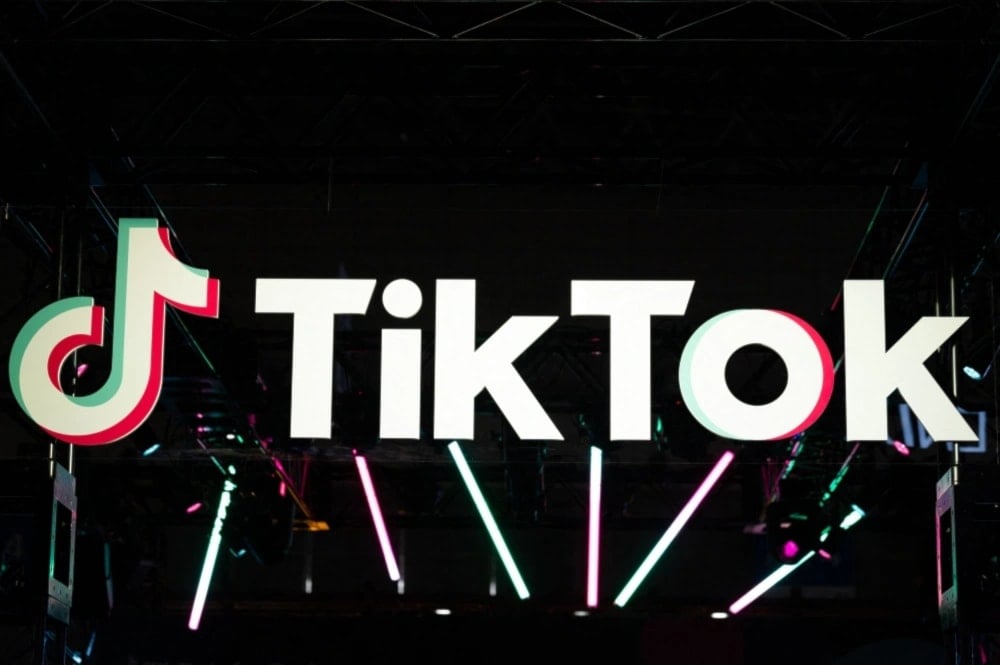TikTok warns to 'go dark' in US Sunday without Biden guarantees
The law, supported by President Joe Biden and Congress, mandates TikTok's Chinese parent company, ByteDance, to either divest its US operations or cease operating within the country by January 19.
-

TikTok Lite Rewards, a feature of a separate version of the primary TikTok app, launched in Spain and France in April (AFP via Getty Images)
TikTok has announced plans to "go dark" in the US on Sunday unless the government guarantees that a new law, which calls for the app’s ban, will not be enforced against key service providers.
"Unless the Biden Administration immediately provides a definitive statement to satisfy the most critical service providers assuring non-enforcement, unfortunately, TikTok will be forced to go dark on January 19," the company said.
On Friday, the US Supreme Court upheld a law supported by President Joe Biden and Congress, which mandated TikTok's owner, ByteDance, to either sell its US operations or shut them down by January 19.
TikTok criticized the White House and the Department of Justice because their statements "failed to provide the necessary clarity and assurance to the service providers that are integral to maintaining TikTok's availability to over 170 million Americans."
The court unanimously ruled that the law does not violate free speech rights and highlighted national security concerns tied to ByteDance’s ownership. It concluded that Congress had reasonably determined a divestiture was necessary to address risks from TikTok's data practices and its ties to a "foreign adversary".
ByteDance, however, has consistently opposed selling its US operations, a position shared by the Chinese government, which has denounced the law as theft.
The justices acknowledged TikTok’s value as "a distinct and expansive outlet for expression, means of engagement, and source of community" for millions of Americans but upheld Congress' decision to prioritize national security concerns.
The big picture
Despite the law being upheld, the Biden Administration stated it would not enforce the ban, leaving the matter to President-elect Donald Trump.
Trump, who opposes the ban, reportedly discussed TikTok with Chinese President Xi Jinping on Friday. On Truth Social, Trump wrote, "The Supreme Court decision was expected, and everyone must respect it," while noting he would need time to seek alternatives.
The Department of Justice also suggested a delay in enforcement, saying implementation "will be a process that plays out over time."
In response to the ruling, TikTok CEO Shou Chew thanked Trump for his willingness to collaborate, stating, "Trump truly understands our platform."
TikTok has been lobbying to prevent the ban's implementation, with Chew planning to attend Trump’s inauguration on Monday.
Dive deeper
The law requires Apple and Google to remove TikTok from their app stores, preventing new downloads, with potential fines of up to $5,000 per user who can still access the app. TikTok’s lawyer Noel Francisco previously warned that the app could shut down on Sunday if it lost the legal battle.
Incoming National Security Advisor Mike Waltz has indicated that the Trump administration will work to prevent TikTok from shutting down entirely, noting the law permits a 90-day delay for negotiating "a viable deal."
Former Los Angeles Dodgers owner Frank McCourt has shown interest in leading a purchase of TikTok's US operations, saying he is "ready to work with the company and President Trump to complete a deal."
A TikTok ban would likely benefit US-owned competitors like Instagram Reels and YouTube Shorts, though creators argue these platforms cannot replicate TikTok's unique capabilities.
"Making videos and reaching people on TikTok is so much easier than a lot of other platforms," said Nathan Espinoza, a TikTok influencer with over 500,000 followers.
Courtney Spritzer, head of Socialfly, said TikTok creators are facing "great uncertainty". Meanwhile, advertisers remain divided, with some expecting a shutdown and others optimistic about TikTok’s future beyond Sunday.
Read more: China mulls potential sale of TikTok US to Elon Musk: Bloomberg

 4 Min Read
4 Min Read








